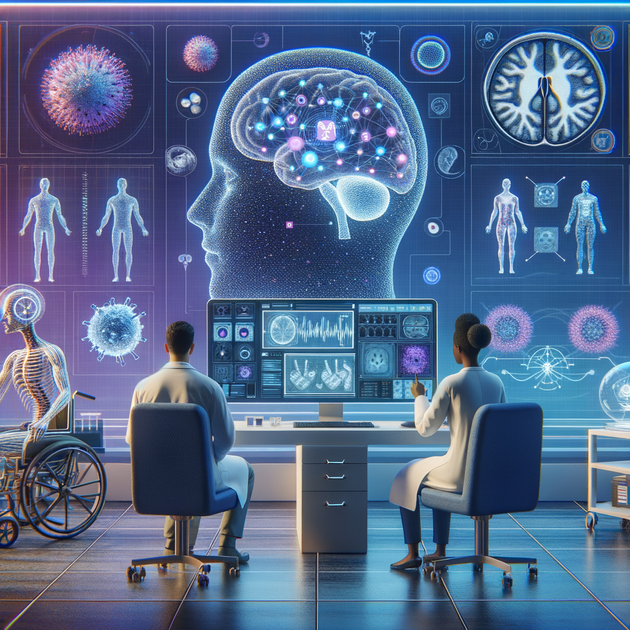How AI is Revolutionizing the Early Detection of Alzheimer’s Disease
The realm of artificial intelligence (AI) continues to unfurl groundbreaking innovations, especially in healthcare. Perhaps one of the most significant disruptions is how AI is changing the landscape of diagnosing Alzheimer’s disease. Leveraging the ingenuity of Cambridge researchers, AI has stepped in where traditional methods have often fallen short. But what does this mean for the millions affected by this debilitating condition? Let’s delve in.
The Stark Reality of Alzheimer’s Disease
Alzheimer’s disease is a formidable foe, affecting over 55 million people worldwide. According to the World Health Organization, this number is expected to triple in the next 50 years. With global costs exceeding $820 billion annually, the stakes are high. Early intervention is crucial, yet pinpointing Alzheimer’s during its incipient stages has always been a challenge.
The Challenge of Early Diagnosis
Alzheimer’s disease, which accounts for 60-80% of dementia cases, is rife with complexities. Its slow, subtle progression often leads to delayed diagnoses, resulting in missed opportunities for early intervention and support planning.
Here’s where AI shines: By enhancing early detection capabilities, AI promises timely and accurate interventions, opening up a window for better disease management.
Cambridge Researchers and Their AI Breakthrough
Researchers from the University of Cambridge have been at the forefront of this revolution. Their latest development is a cutting-edge AI tool that boasts an accuracy rate three times higher than traditional clinical tests in predicting the progression of Alzheimer’s.
How the AI Tool Works
The AI model was crafted using non-invasive and low-cost patient data, including structural MRI scans and cognitive tests. By meticulously analyzing gray matter atrophy in over 400 individuals, the AI could predict with remarkable accuracy who would develop Alzheimer’s.

Implications for the Future
This AI model not only identifies the likelihood of Alzheimer’s progression but also provides nuanced insights into the speed of this progression. Patients are categorized into three distinct groups:
- Stable: Individuals whose symptoms remain static.
- Slow Progression: Those witnessing a gradual decline.
- Rapid Progression: Patients experiencing a swift deterioration.
Validating the AI Model
The model’s robustness was validated through extensive testing with real-world data from over 1,500 individuals across the US, UK, and Singapore. The findings reaffirm the tool’s efficacy, highlighting its potential in real-world clinical settings.
A Broader Horizon: Expanding AI’s Scope
The Cambridge team is not resting on their laurels. Plans are underway to extend this AI model to other dementia types, such as vascular dementia and frontotemporal dementia, by incorporating diverse data sources like blood test markers.
Moreover, AI’s footprint in Alzheimer’s research isn’t just limited to diagnosis. Joint efforts by Insilico Medicine and the University of Cambridge are leveraging AI to identify potential drug targets for Alzheimer’s, paving the way for groundbreaking treatments.

The Transformative Power of AI in Healthcare
AI’s ability to process immense volumes of data swiftly and accurately makes it an invaluable tool in healthcare. From identifying cancerous cells to predicting the onset of neurodegenerative diseases, AI is laying the groundwork for a future where precision medicine is the norm.
Key Takeaway: By integrating AI with traditional medical practices, we can usher in an era of personalized, efficient, and proactive healthcare.
An Invitation to Reflect and Engage
This AI breakthrough is just the tip of the iceberg. As we continue to explore the potential of AI in healthcare, one can’t help but wonder: How will AI reshape our understanding and management of other complex diseases? We invite you to share your thoughts and join the conversation. Could AI hold the key to transforming not just Alzheimer’s care, but the entire landscape of global healthcare?
